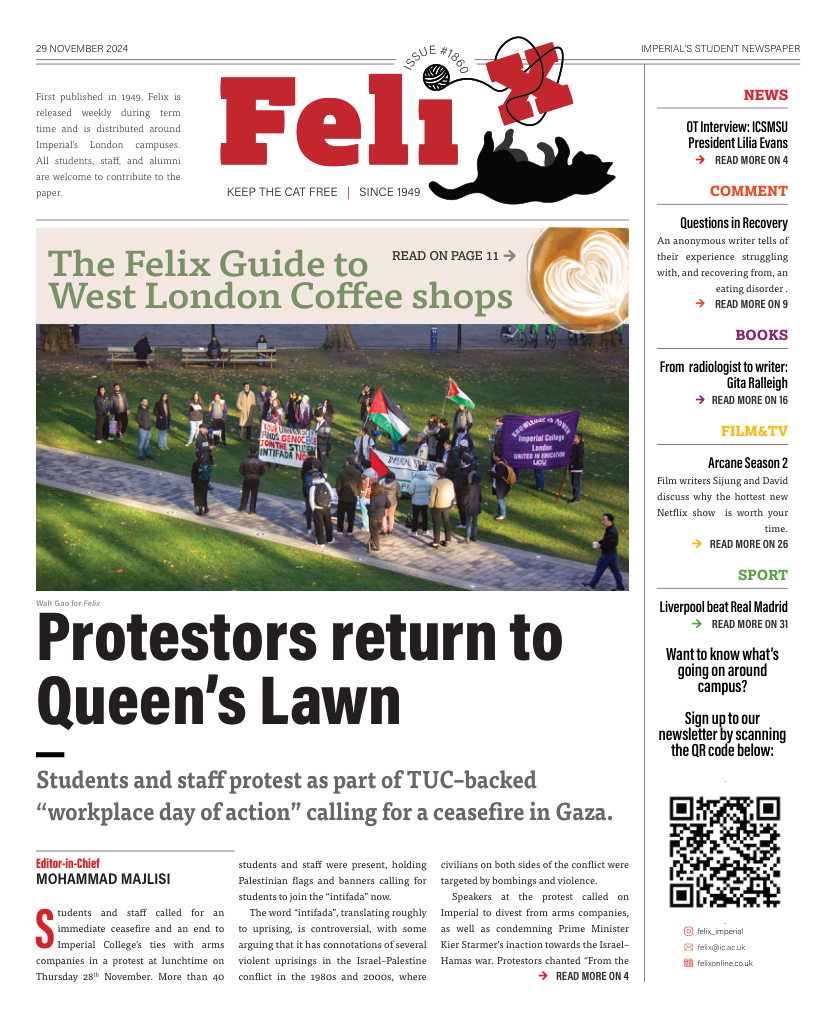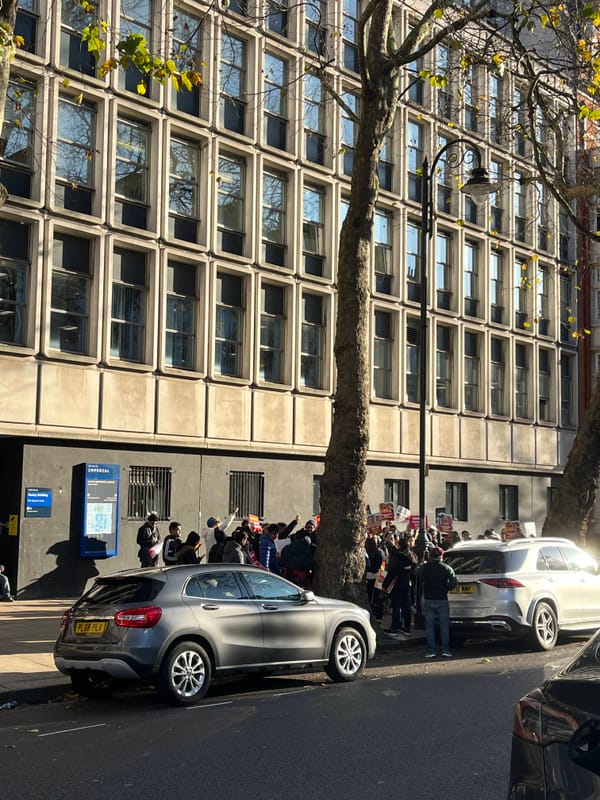OT Interviews: Lilia Evans, ICSMSU President
Lilia discusses her plans to improve the culture within the Medicine department, and how the nature of the department presents her with unique problems and opportunities.
Lilia Evans is sat in the Felix office, phone in hand. She is constantly on the lookout for messages from the medics’ union team, consisting almost entirely of student volunteers. She is the only sabbatical officer, and her position involves managing a team of 23 students. She won with a strong mandate of 64%, in part due to her previous commitment to the Union. “I was Vice–Chair for Wellbeing Reps,” she tells me. “Then I went to Welfare Chair.”
Her manifesto focused entirely on the welfare of students, with her four aims for the year being student representation, expanding financial accessibility, fostering inclusivity and equity, and building a supportive and competent union.
I ask Lilia about why there is a focus on culture and welfare instead of academic goals. She said, “With my experience of being on the SU Committee, I think the academics team and the liaisons working with faculty has always been good, or at least since I've been at Imperial.
“And the academic stream just generally is really, really self-sufficient – they run mocks, they work with faculty, and I always have seen that as kind of an ongoing thing that we're constantly doing that doesn't need so much specific support. Those feedback points are coming through constantly. I would say [for] BMB (BSc Medical Biosciences), we should be focusing on academic support a lot more, but it's difficult for me given I don't know what the BMB course is like and I'm relying on the officers and Student Union to kind of relay that back.
“I think things that we typically associate with academics, such as mitigating circumstance and like that kind of welfare support areas of being on placement or the student experience or placement travel costs, those are associated with academic success, but there are more welfare issues, which is what I'm focusing on more, so indirectly I am kind of trying to target academic things.”
I pick up on the BMB part: it is the only other undergraduate course that the Faculty of Medicine offers and students are also represented by Imperial College School of Medicine Student Union. Lilia wants to improve the engagement from BMB students.: although there are “three BMB officers,” she explains, “I think they don't feel represented by ICSMSU. They don't feel like they identify with us and that is something that I do really want to help improve. [I’m] having conversations with BMB students from identify what they want and also just trying to support BMB society to put on events for their community.”
Medicine, stereotypically used to be a very white male dominated profession, but it is changing.”
I discussed representation, a key theme across all of Lilia’s promises. It’s inspired partly by her own experiences – she has “been involved in quite a few societies in medicine like in ICSM (Imperial College School of Medicine) and being part of those societies or going to sports nights, there's been things in the past, I recognize as not being [conducive to a] good, positive culture. Being more involved in SU over the years, I had the nice opportunity to meet other, older years that were more confident in speaking out against certain issues.”
She continues: “The biggest issues for me are all these EDI (equality, diversity, and inclusion) characteristics, so being a student with disabilities, or being an LGBTQ+ student, or even being a student that is has a religious identity that they visibly show by wearing like a hijab or something. Those students are disproportionately underrepresented on placement and because of the nature of placements, we go to hospitals, you're interacting with consultants that aren't members of faculty here.” Medical students complete three years of placement, in their third, fifth and sixth years, as well as across the first two years. “Sometimes you can get people not being very nice to you: racist remarks, but also just visibly, not seeing yourself represented in those more senior members of staff. Medicine, stereotypically used to be a very white male dominated profession, but it is changing.”
Her last promise is what piques my interest – what is a “supportive and competent SU” and why does one need to be built? Medical students seem to be the most satisfied – as shown through successive National Student Survey (NSS) results – and the fact that culturally medical students are known to have their own ecosystem that they engage in. Lilia tells me it’s because “there’s a certain type of student” who applies for roles. “When we have discussions as a committee, I think it is very easy for people to bring in their personal views and then the rest of the committee agree with it because it kind of aligns, but what I've been pushing this year in, chairing the meetings is to think from different perspectives of students that I don't typically hear from.
“Obviously I have my friendship group and they're very similar to me as well, so even if I talk to them about faculty, they'll probably agree with whatever my sentiment is. So, [I’m trying] trying to reach beyond that and consult people that we don't usually hear from.”









